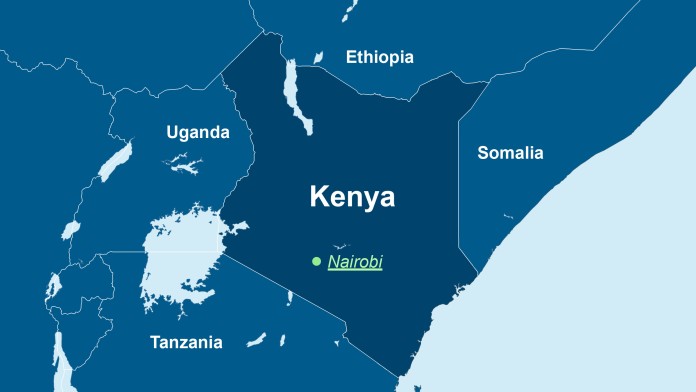
The country in eastern Africa is home to grand landscapes and diverse wildlife. But that’s not all. With over 50 million people and annual economic growth of more than 5%, Kenya is the region’s driving economic force. Its economy is based on a strong private sector, investment in infrastructure, a growing middle class and a decentralised government model. The political system is relatively stable. By 2030, Kenya aims to be among the upper middle-income countries.
However, there is still a lot to do. The Kenyan government is not yet able to exploit the country’s economic potential in a socially fair and environmentally and economically sustainable manner. More than a third of the population lives below the poverty line, and many young people are unemployed. Most people work in agriculture, which contributes around one fifth of gross domestic product, but is heavily dependent on rainfall. There is little irrigation. The rapid urbanisation process in Kenya is also causing the demand for water and sanitation services to increase much more than existing capacities can meet. In addition, Kenya wants to expand its electricity supply and, in the process, completely switch to renewable energies.
KfW is supporting Kenya on behalf of the German Federal Government in achieving its development policy objectives, particularly in the following areas:
On behalf of the Federal Ministry for Economic Cooperation and Development (BMZ), KfW is financing irrigation projects and building transport routes and markets. The aim is to secure the supply of food regardless of rainfall. Farmers are involved in the design process and learn how to operate and maintain irrigation systems.
KfW has also been committed to improving the supply of clean and affordable drinking water for over 50 years, especially in poor urban neighbourhoods. It provides investment funds to the Water Services Trust Fund, a national financing institution, for water kiosks and public sanitary facilities. As a result, over 1.8 million people have already been supplied with clean water.
To provide more jobs and promote vocational training, KfW is promoting the “Wings-To-Fly” scholarship programme. Particularly disadvantaged adolescents who achieve well in school, such as orphans or children from very poor families, are thus given the chance to attend a good secondary school.
KfW is supporting the Kenyan government in its efforts to secure a cost-effective, environmentally friendly and reliable electricity supply. Through the construction of geothermal power plants and the rehabilitation of hydropower plants, a total of 470 megawatts of electricity were generated, saving 1.3 million tonnes of CO2 annually.
KfW is supporting the East African state in its efforts to achieve long-term economic growth that benefits all parts of the population.
KfW Office Nairobi
Director KfW Office: Oskar von Maltzan
Riverside Square
Riverside Drive
P.O. Box 52074
00200 Nairobi
Kenya
+254 20 760 5340
Fax: +25 42 04 22 82 22